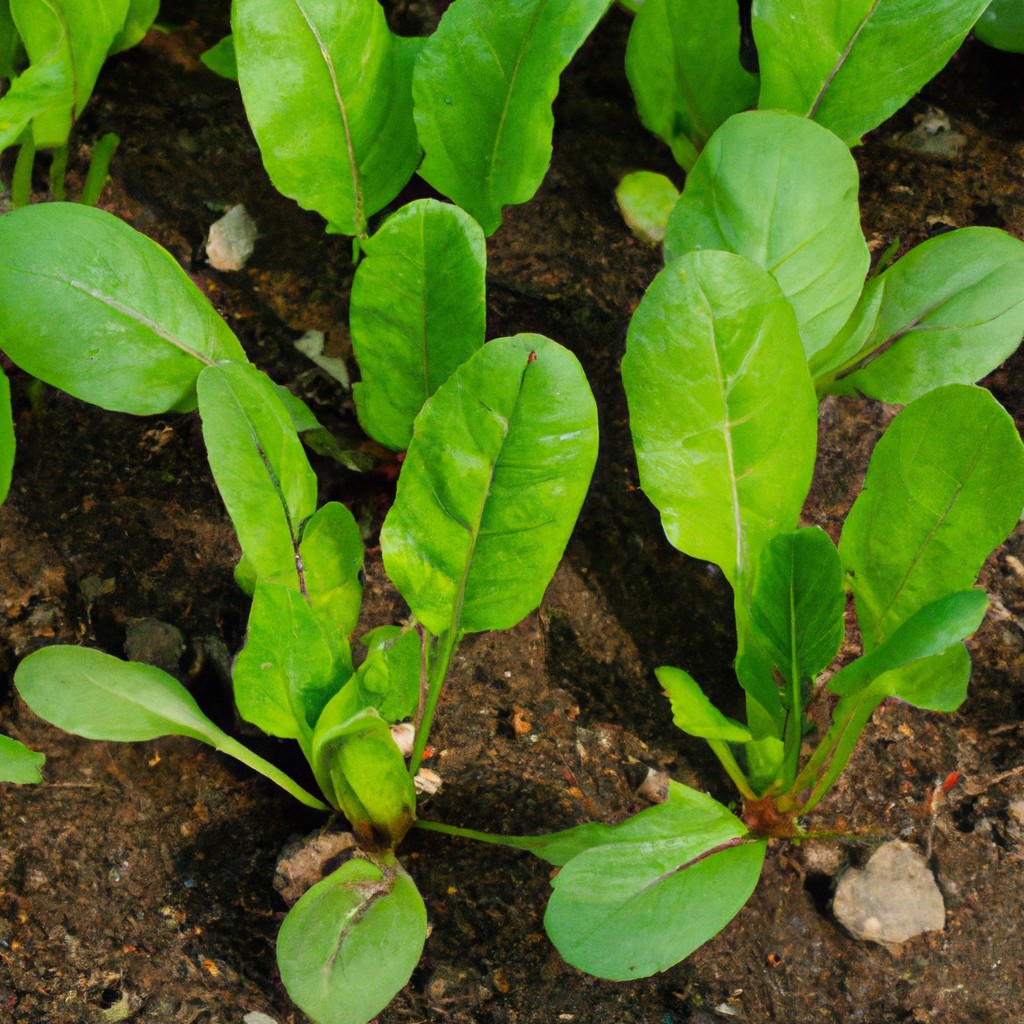Organic farming, with its emphasis on sustainability and environmental health, offers a multitude of benefits to both farmers and consumers.
Organic farming, a cornerstone of sustainable agriculture, offers a multitude of benefits that extend beyond the ranch gates. This agricultural approach is not only beneficial for the health of consumers, but also for the environment and the overall well-being of livestock.
It promotes biodiversity, improves soil fertility, and reduces the reliance on chemical pesticides and fertilizers. Moreover, it ensures animal welfare by providing a natural and stress-free habitat for livestock.
Dive deeper into this article to uncover the full spectrum of advantages that organic farming has to offer.
Key takeaways:
- Organic farming enhances soil fertility and structure.
- It promotes biodiversity and reduces harmful pesticide use.
- Organic farming protects water quality and reduces erosion.
- It lessens dependence on non-renewable energy sources.
- Organic farming mimics natural systems and sustains ecosystems.
Benefits of Organic Farming On Soil Health

Organic farming benefits soil health in several critical ways:
1. Enhances soil fertility: Organic manure, green manure, compost, and other organic fertilizers enrich the soil with necessary nutrients.
2. Improves soil structure: Organic matter enhances the soil’s ability to retain water and allows air to circulate, benefitting plant roots.
3. Increases microbial activity: A healthy soil requires an active microbial community. Organic farming provides the environment needed for beneficial microorganisms to thrive.
4. Avoids synthetic fertilizers: These can lead to a build-up of harmful salts in the soil, that’s not an issue with organic fertilizers.
5. Promotes long-term sustainability: Organic farming ensures the natural fertility and productivity of the soil is maintained for future generations.
6. Reduces soil erosion: Organic practices like cover cropping and crop rotation, help bind the soil together, preventing erosion.
Overall, these factors result in healthier, more resilient soil that nourishes the plants and ensures a bountiful harvest.
Organic Farming’s Impact On Reducing Harmful Pesticide Use
Chemical pesticides, often used in conventional agriculture, present multiple dangers including environmental pollution, disruption of ecosystems, and health risks for humans and animals. Shifting to organic farming methods, which disallow synthetic pesticide use, offers a solution to these issues.
The organic approach prioritizes non-chemical methods such as:
- Biological pest control – predators, parasites, or pathogens are used to control pests. e.g., ladybugs are introduced to manage aphids.
- Crop rotation – altering what is planted in specific places can confuse pests and disrupt their life cycle.
- Mechanical tactics – large pests are removed by hand or trap and barriers are established to limit their access.
These methods work synergistically, enhancing their effectiveness while safeguarding health and the environment. The reduction of pesticide use is not only a benefit of organic farming but also a sustainable solution for future generations.
Interaction of Organic Farming With Water Cleanliness
Traditionally farmed produce often relies on heavy use of chemical pesticides, which can leach into local watersheds, polluting them and causing harm to aquatic life. Organic farming, however, curbs this issue by avoiding synthetic chemical usage.
1. Limited Chemical Runoff: Without synthetic chemicals, organic farms contribute less harmful runoff into nearby bodies of water.
2. Nourishment of Aquatic Life: By reducing pollutants in the water, organic farming benefits various species in aquatic ecosystems, contributing positively to biodiversity.
3. Water Quality: Organic farming practices help ensure the safe quality of water in both rural and urban communities.
4. Preservation of Water Bodies: Organic farming’s responsible land use reduces the chances of soil erosion and sedimentation in water bodies, thereby maintaining their integrity.
5. Reduction of Harmful Algae Blooms: Organic farming mitigates the occurrence of harmful nitrogen and phosphorus runoff, elements often responsible for toxic algae blooms.
6. Groundwater Safety: By not applying synthetic chemicals, organic farms protect groundwater, a vital drinking water source for many rural areas.
Expressing How Organic Farming Encourages Biodiversity
Organic farming practices foster an ecosystem that supports a wide variety of plants, insects, and microorganisms.
1. Land rotation: Prevents pest build-up, reduces the need for synthetic pesticides and promotes different crops which contributes to varied habitats.
2. Maintaining habitat diversity: Organic fields often include non-crop areas which provide homes for naturally occurring beneficial organisms.
3. Avoiding Genetically Modified Organisms: GMOs could potentially threaten diversity due to cross-pollination, growing only non-GMO crops ensures this threat is mitigated.
4. Focus on native species: Native plants and animals have evolved to coexist, aiding in pest control, pollination and sustaining the soil.
5. Reduction of monocultures: Cycles of different crops lessen the risk of disease and pests associated with single-crop fields.
Organic Farming’s Contribution to Lessening Erosion
Organic farming techniques actively contribute to erosion control. These methods include:
- 1. Diversified crop rotations: Varied crops naturally contribute to breaking the cycle of pest buildup and effectively deter soil erosion.
- 2. Cover crops: These crops cover the soil, preventing erosion by holding the soil together and increasing its organic matter content.
- 3. Contour plowing: This farming technique is implemented in sync with the natural terrain, reducing water runoffs and promoting soil conservation.
- 4. Terracing: This method involves creating flat platforms on sloping land and acts as a potent barrier against downhill soil movement.
- 5. Agroforestry: Integration of trees and shrubs in agricultural practice increases root network, holding soil together and preventing erosion.
- 6. Buffer strips: Permanent vegetation planted in and around farmland help to filter out agricultural pollutants and mitigate soil erosion.
Through these practices, organic farming is responsible for significant soil retention compared to conventional farming.
The Role of Organic Farming in Reducing Dependence On Non-Renewable Energy
Organic farming practices can significantly cut down on energy consumption in contrast to conventional methods. The primary factors behind this include:
- 1. Fertilization: Instead of using synthetically produced fertilizers, organic farming largely relies on compost, green manure, and other organic material – sources that are renewable.
- 2. Biopesticides: Replacing chemical pesticides with naturally derived alternatives reduces the energy taken in production and transportation.
- 3. Mechanical Cultivation: The use of crop rotation, intercropping, and cover crops eliminate the need for energy-intensive practices, such as tilling.
- 4. Livestock Feed: Organic farming often integrates plant cultivation and animal husbandry, using crops for fodder, which reduces the energy footprint involved in producing and distributing animal feed.
By incorporating these components, organic farming positions itself as an environmentally responsable approach to agriculture, considerably decreasing dependence on non-renewable energy sources.
Interpreting the Concept and Process of Organic Farming
Organic farming is distinguished in three primary ways:
- 1. It uses natural methods of pest and disease control, as opposed to traditional synthetic pesticides and herbicides.
- 2. It incorporates techniques like crop rotation and companion planting, which maintain and improve soil health over time.
- 3. It refrains from the use of genetically modified organisms (GMOs), thus adhering strictly to naturally occurring plant and animal species.
In essence, the process of organic farming revolves around mimicking natural systems rather than relying on artificial inputs. This commitment to eco-friendly practices carries over into other aspects of the farm, from water conservation measures to the humane treatment of livestock. An organic farm doesn’t merely produce food; it aims to sustain and enrich the surrounding ecosystem.
FAQ
What are 3 benefits of organic farming over conventional farming?
Organic farming significantly reduces greenhouse gas emissions, effectively conserves and improves soil health, and contributes to cleaner water and air by replenishing natural ecosystems.
How does organic farming enrich the soil compared to conventional farming methods?
Organic farming enriches the soil through crop rotation, cover crops, and organic fertilizers which improve soil fertility and structure, whereas conventional farming often depletes nutrients with its heavy reliance on synthetic fertilizers.
Can organic farming lead to better nutrient content in food products?
Yes, organic farming can lead to better nutrient content in food products as it encourages soil and plant health, thus potentially enhancing the concentration of nutrients.
What impact does organic farming have on biodiversity in comparison to conventional farming?
Organic farming positively impacts biodiversity by promoting a variety of species and healthy ecosystems, while conventional farming tends to reduce biodiversity due to its reliance on monoculture and synthetic pesticides.
